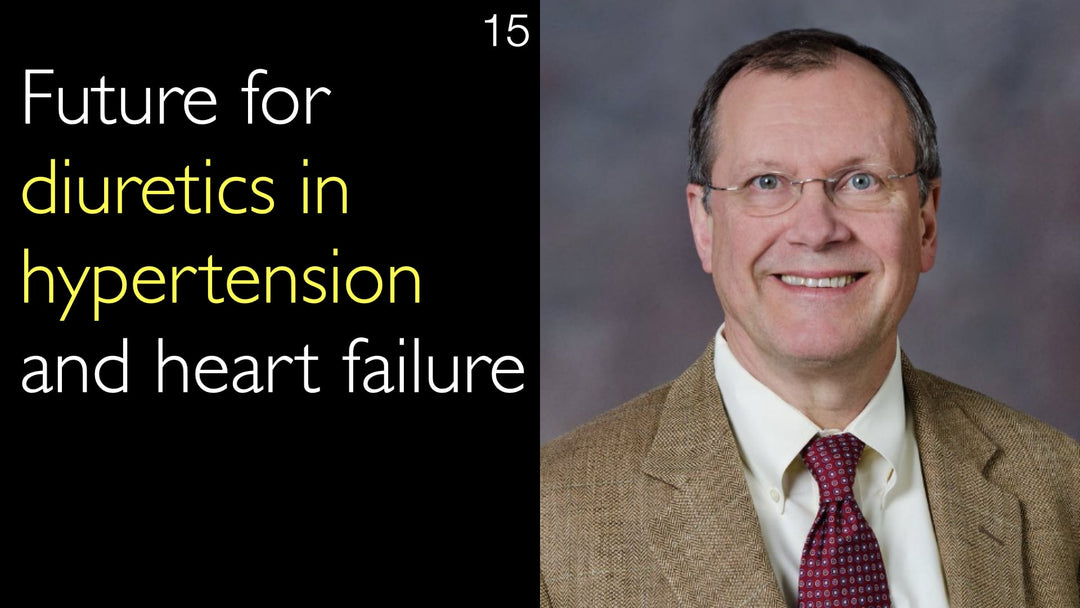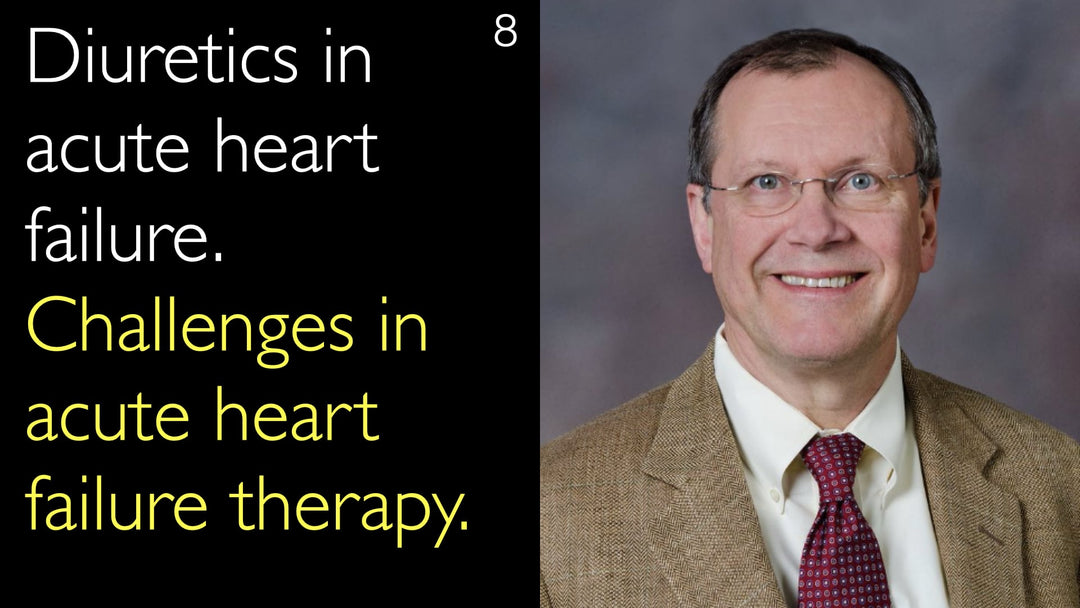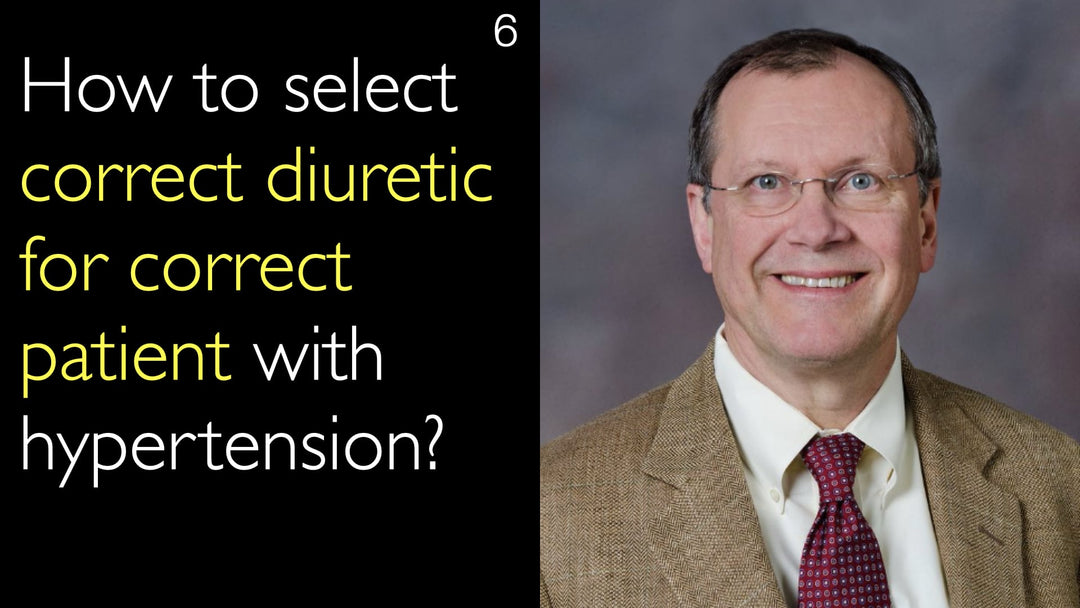Leading expert in tricuspid valve disease, Dr. Ottavio Alfieri, MD, discusses the importance of early treatment for tricuspid valve regurgitation, a condition often linked with heart failure. He highlights the need for aggressive intervention, even in cases with minimal symptoms, to prevent right ventricular dysfunction and pulmonary hypertension. Dr. Titov also compares traditional open-heart surgery with emerging transcatheter techniques, emphasizing that early surgical intervention can significantly improve patient outcomes and reduce surgical risks.
Early Intervention in Tricuspid Valve Regurgitation: Surgical and Transcatheter Options
Jump To Section
- Understanding Tricuspid Valve Regurgitation
- Aggressive Treatment Strategies
- Role of Mitral Regurgitation in Tricuspid Valve Disease
- Transcatheter Techniques for Tricuspid Valve Repair
- Importance of Early Diagnosis and Treatment
- Clinical Team Proactivity in Managing Tricuspid Regurgitation
- Full Transcript
Understanding Tricuspid Valve Regurgitation
Tricuspid valve regurgitation is a condition where the valve between the right atrium and right ventricle fails to close properly, leading to blood flow backward into the atrium. Dr. Ottavio Alfieri, MD, explains that this condition is often undertreated and can significantly complicate heart failure. It is crucial to address tricuspid regurgitation early to prevent poor prognosis and further heart complications.
Aggressive Treatment Strategies
Dr. Titov emphasizes the need for aggressive treatment of tricuspid regurgitation, especially when associated with left-side heart valve diseases. Even if the regurgitation is not severe, intervention is necessary if there is tricuspid annulus dilatation. Early surgical intervention during left-side valve surgery can prevent further complications and improve patient outcomes.
Role of Mitral Regurgitation in Tricuspid Valve Disease
Mitral regurgitation can contribute to the development of tricuspid regurgitation. Dr. Titov advises treating mitral problems first and, if possible, addressing tricuspid regurgitation simultaneously. This approach does not significantly increase surgical risk but can lead to substantial improvements in patient outcomes.
Transcatheter Techniques for Tricuspid Valve Repair
Transcatheter techniques for tricuspid valve repair are emerging as alternatives to open-heart surgery, particularly for high-risk patients. However, Dr. Titov notes that these methods are not yet as standardized as those for mitral valve treatment. He suggests reserving percutaneous treatments for patients with higher surgical risks and emphasizes the importance of early surgical intervention for those with low surgical risks.
Importance of Early Diagnosis and Treatment
Dr. Titov stresses the importance of early diagnosis and treatment of tricuspid valve regurgitation. Assessing right ventricular function and addressing regurgitation before severe symptoms or right ventricular dysfunction occur can lead to better outcomes and lower surgical risks. Early intervention is key to preventing pulmonary hypertension and ensuring long-term patient health.
Clinical Team Proactivity in Managing Tricuspid Regurgitation
The role of the clinical team, including surgeons and cardiologists, is crucial in managing tricuspid regurgitation. Dr. Titov highlights the need for proactive treatment at the earliest stages of the disease. Delaying surgery due to minimal symptoms can be a mistake, as early intervention significantly reduces surgical risks and enhances long-term benefits for patients.
Full Transcript
Dr. Ottavio Alfieri, MD Let's discuss functional tricuspid regurgitation and tricuspid valve disease, which mostly means tricuspid regurgitation. It's a very undertreated problem, and functional tricuspid valve regurgitation often has a poor prognosis. It complicates overall heart failure. What are the treatment options today for tricuspid valve regurgitation? Especially, there is also the development of percutaneous transcatheter techniques. How does this compare with open-heart surgery?
Dr. Ottavio Alfieri, MD Certainly, tricuspid valve regurgitation is a problem, which is different in different scenarios. First of all, we can have tricuspid regurgitation associated with left-side heart valve diseases. Tricuspid regurgitation in those cases has to be treated very aggressively. In other words, even if tricuspid regurgitation is not severe, but we have tricuspid annulus dilatation, we have to correct tricuspid regurgitation when we do left-side valve surgery.
This is one scenario—tricuspid regurgitation in association with the mitral problem or the aortic problem. Then we have the scenario of isolated tricuspid regurgitation. You can have this scenario in the context of heart failure in patients who have been previously treated with left-side heart valve surgery. Patients could previously be treated with the MitraClip procedure. So we are faced now with isolated tricuspid regurgitation.
In this case, we have to be very aggressive. Even the recent guidelines of heart surgery suggest this. The right ventricle can be dilated, and even it may not be excessively dysfunctioned. But because we have right ventricular dysfunction, we have pulmonary hypertension. Then the surgical treatment is associated with a very high risk. So the message is to be very aggressive in those patients and treat tricuspid regurgitation. Even without severe symptoms, even with minimal symptoms, provided the ventricle is dilated, it will start to dysfunctional.
There is a subcategory of patients, which are difficult to treat. It's called HFpEF, heart failure with preserved ejection fraction. Sometimes it's a dysfunction of the right ventricle. Are these patients also affected with mitral regurgitation, or is that purely a medical problem to treat?
Dr. Ottavio Alfieri, MD I think that mitral regurgitation can have a role in developing tricuspid regurgitation. Once we have mitral problems, we have to treat the mitral problem first. And concomitantly, if possible, we have to treat tricuspid regurgitation.
During the same surgery? During the same surgery, for sure. The tricuspid valve surgery in that context is not adding too much to the operation in terms of risk. But it is associated with a remarkable improvement in outcome.
The transcatheter treatment methods for tricuspid valve regurgitation. Do they also apply to the same kind of patient category?
Dr. Ottavio Alfieri, MD Tricuspid percutaneous treatment is not so much standardized as mitral valve treatment. Tricuspid percutaneous treatment certainly can be considered in higher-risk patients. But I would be reluctant to consider percutaneous tricuspid treatment in patients with the surgical tricuspid repair or replacement with a very low surgical risk.
A very low surgical risk is in a very early stage of the tricuspid valve disease before symptoms appear. We only have right ventricular dilatation and initial dysfunction of the right ventricle.
That's very important. So it speaks to the necessity of really assessing the right ventricular function and right ventricular tricuspid valve regurgitation early to offer patients the best outcome and the least risk of surgery.
Dr. Ottavio Alfieri, MD Exactly! And the recent guidelines are really pointing out that. The secret to having good results in tricuspid valve surgery or percutaneous treatment is just to be aggressive. You must treat the patient before they develop severe symptoms, before the right ventricle is dysfunctional, and before pulmonary hypertension develops.
So this is where the role of the treating clinical team - the surgeon, the cardiologist - comes in. They have to be proactive in offering appropriate treatment at the earliest stages of the disease.
Dr. Ottavio Alfieri, MD Exactly. The early treatment at the early stages is the secret of this. It has to be very well considered by the cardiological community. The cardiological community tends to delay in the operation because the patients are reasonably well, because the patient is responding very well, for instance, to the diuretic medications. But this is basically a mistake.
We have to take into consideration that if surgery is done properly in the early stage of right ventricular disease, the risk of surgery is extremely low, approaching zero. And the benefit, in the long run, is very high.







